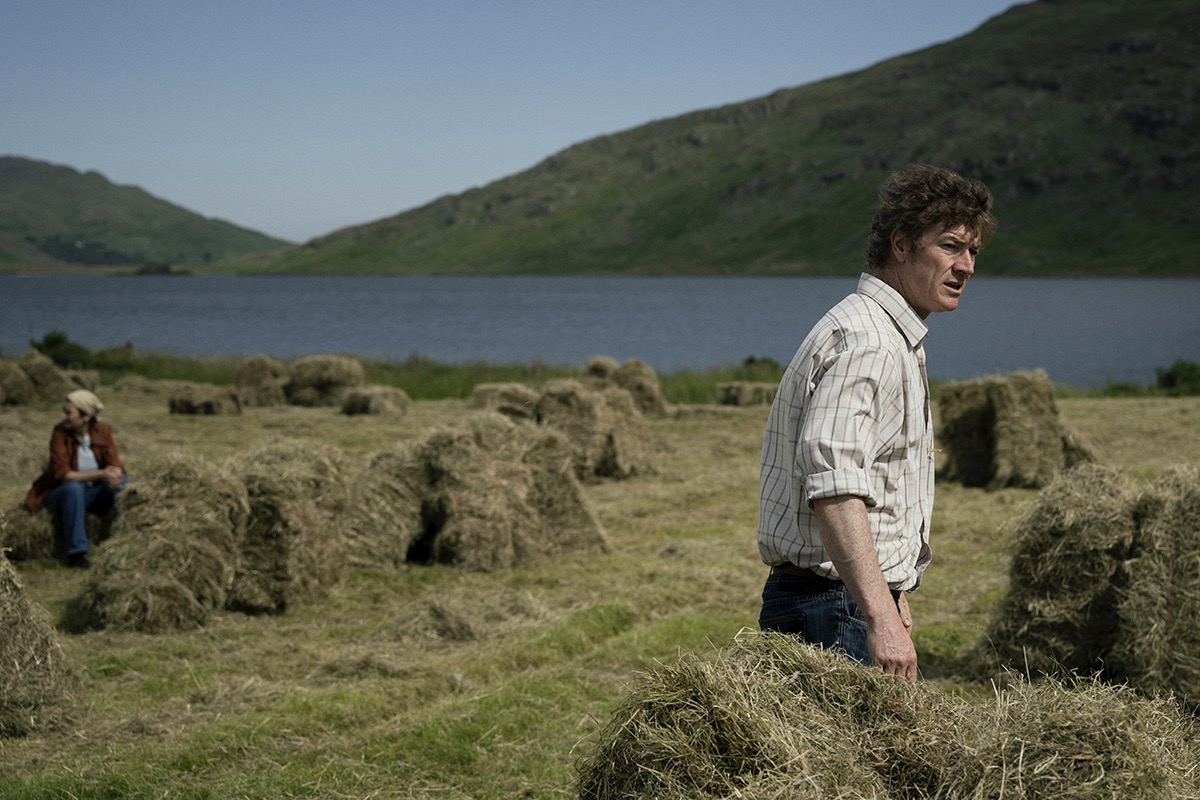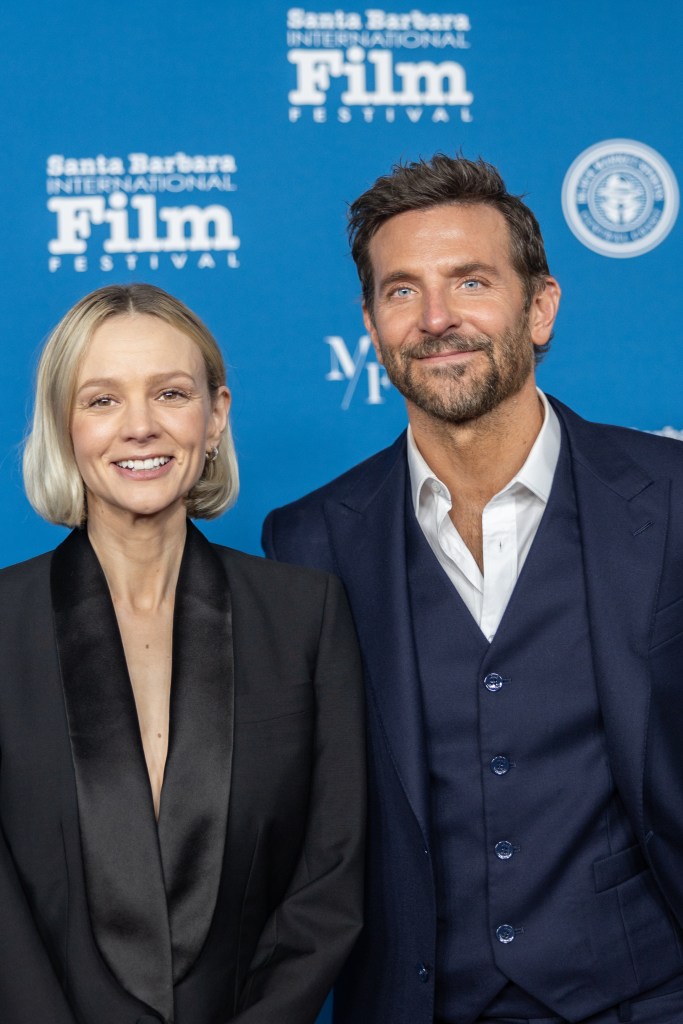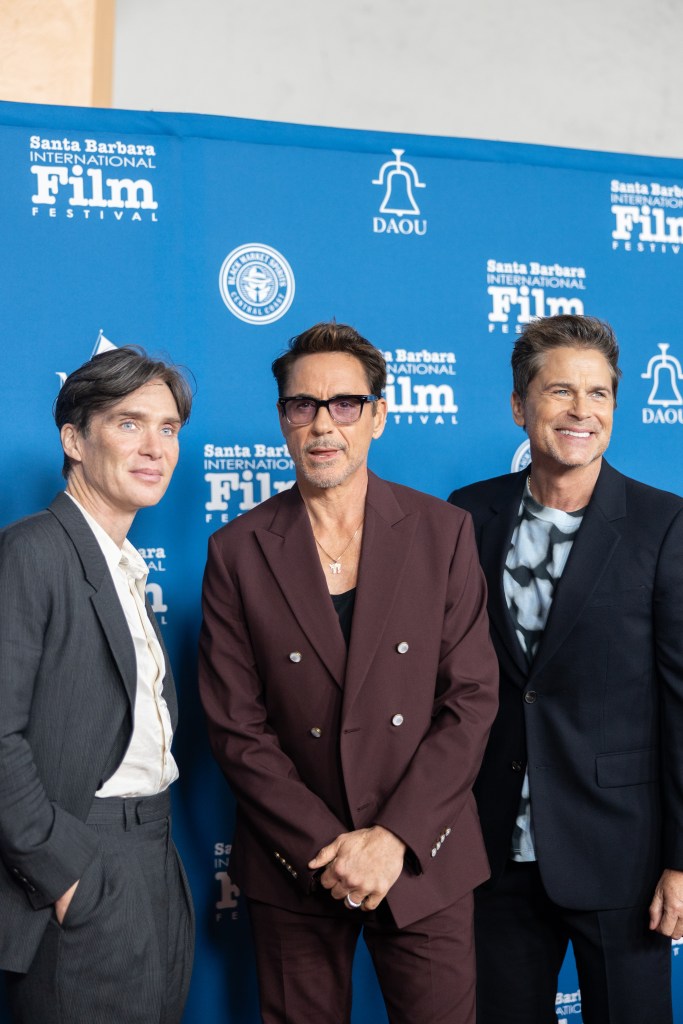Report from Amid a Strong SBIFF
The 39th Santa Barbara International Film Festival Is in a Healthy Stride at Mid-Point, Running Through Saturday
The 39th Santa Barbara International Film Festival Is in a Healthy Stride at Mid-Point, Running Through Saturday

Last Thursday at the Arlington Theatre, the traditional klieg light dance beamed into the Santa Barbara sky, indicating that another Santa Barbara International Film Festival was upon us. At press time, roughly a mid-point in this 39th annual affair — a highlight of Santa Barbara’s cultural year — is a rich pageantry, in which celebrity and filmmaker tributes sparkle above a rumbling core of 200+ films that span the global cinema scene.
Although the film festival can’t and shouldn’t be judged by its opening film, the documentary Madu — about a young Nigerian youth’s pursuit of a dream to become a ballet dancer — offered a warm, feel-good ambiance for the festival games to begin.
Opening night also unveiled the film most frequently seen during the festival — the SBIFF trailer, featuring elements from artist Angela Perko’s poster. Executive director Roger Durling greeted the crowd, emphasizing the communal part of the festival, the act of “watching a film and turning to someone to talk about it. We come to the movies for the feeling of being alive.”
SBIFF has considerably upped its game for showcasing the “being alive” aspect of celebrities and other film artists showing up in Santa Barbara. Generally, the tributes and appearances are synced with the impending Oscars and their nomination list, as was the case when the much-buzzed-about Bradley Cooper (Maestro) kicked things off on a high note on Thursday, followed by evenings with two powerful actors — Robert Downey, Jr. and Mark Ruffalo — who have rarely been given their proper spotlight, and who have profited from Hollywood’s superhero supermarket while also pursuing worthier, artier projects. Their Oscar nods are for supporting roles, in Oppenheimer and Poor Things, respectively.

Downey offered up one of the more intelligent and witty tribute “roles” in memory at SBIFF. (Coming up in the festival’s last stretch are tributes to Jeffrey Wright (American Fiction) on Thursday, February 15, and Annette Bening (Nyad) on Friday, inaugurating the festival’s new “Arlington Award.” Paul Giamatti (The Holdovers) is also being honored on February 14, just as this goes to press.)
Sunday’s schedule began with Durling — before the 8 a.m. “Breakfast Club” screening of the fine Hungarian film Without Air – urging the crowd to dodge the Super Bowl and go for “the Super Bowl of cinema.” Later that morning, thinking person’s pop star Billie Eilish showed up to a screaming and crying chorus of fans outside the Arlington, where her appearance at the Variety Artisan Awards triggered that now 10-year-old specialist event its first sold-out house. Her filmic connection was her theme song for Barbie — co-star America Ferrara was onstage at the Virtuoso Awards the night before. Eilish recalled the Oscar-nominated song as having “picked me up like a little hook lifting me out of a dark place.”
Eilish and brother-partner Finneas joined a panel of cinema artists who often don’t get enough public credit, including the great cinematographer Rodrigo Prieto (there for Killers of the Flower Moon, but also behind Barbie), Oppenheimer composer Ludwig Goransson, and the all-important Barbie production designers Sarah Greenwood and Katie Spencer.
That night, Ruffalo was given his “this has been your life” treatment in the American Riviera Award slot, with his Poor Things co-star Emma Stone putting in a surprise, standing ovation-sparking cameo as award presenter. Ruffalo ended his humble acceptance speech with an impassioned plea for relief from the Palestinian slaughter, commenting “You can’t bomb your way to peace.” Of course, that conflict is ongoing as we both escape from and vicariously experience worldly realities, the inviting paradox of SBIFF’s annual window on the world through a cinematic lens.

Under programming director Claudia Puig this year’s films are especially strong, selected with “inclusivity” in mind and action, with more attention to women artists and those of color. We’ve also seen an uptick in post-screening Q&As adding an extra layer of direct connection with the faces and creative minds behind the screen.
Italian director Matteo Garrone (Gomorrah) was on hand post-screening for his remarkable new Senegal-to-Sicily immigration saga Io Capitano, along with the two Senegalese leads and the man whose bracing story was told. Garrone also appeared as part of the International Directors Panel alongside veteran German director Wim Wenders and others.
A sleeper “discovery” was the peaceful and deep Irish film That They May Face the Rising Sun, with its director-writer Pat Collins speaking expansively about his passion project, based on the well-known novel by John McGahern about a simpler life and the power of community in rural, pre-telephone-connected Ireland. Happening upon films like this, far from the madding Hollywood crowd, are part of what keeps us coming back to SBIFF and sinking into dark theaters.SBIFF 2024 is a winning, so far, very good proposition. My best of the list at mid-point: Io Capitano, We Grown Now, That They May Face the Rising Sun, Thank You Very Much, Mr. Freeman, Without Air, Ezra, On Earth as in Heaven, The Cowboy and the Queen, Giants Rising.
Please note this login is to submit events or press releases. Use this page here to login for your Independent subscription
Not a member? Sign up here.
You must be logged in to post a comment.